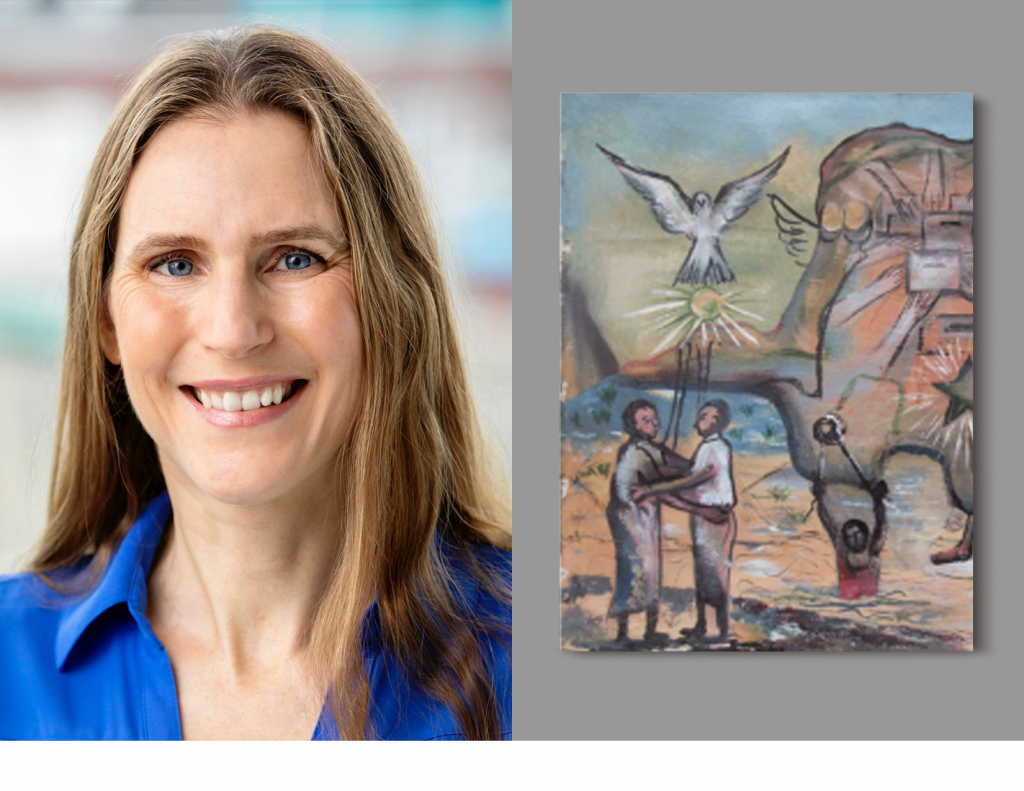
This is the second in a series of interviews bringing attention to issues and innovators in global culture. We spearheaded the development of The Colleen Ritzau Leth ’08 Family Fund for International Research to provide ongoing support to Barnard College faculty conducting research that promotes mutual understanding between diverse societies and allows Barnard’s exceptional faculty to engage deeply in original studies on topics spanning international relations, peace building studies, economics, and human rights.
In 2018, The Leth Family Fund awarded the second consecutive grant to Professor of Political Science Dr. Séverine Autesserre, an award-winning researcher, author, and an expert in peacebuilding and African civil wars, particularly in the Democratic Republic of Congo. Her latest findings will be published in a forthcoming text, On the Frontlines of Peace.
Q. Dr. Autesserre, you are an expert in war, peace, peacebuilding, peacekeeping, humanitarian aid, and African politics. May I ask what sparked your interest in civil war and peacebuilding?
A. Before becoming an academic, I wanted to be a journalist, as my parents worked for the French National Radio Station. However, I quickly discovered that I wanted to do something about war and suffering, and I became an activist. So I worked for humanitarian and development agencies in Afghanistan, Kosovo, the Democratic Republic of Congo, Nicaragua, and India. But ultimately, I needed the freedom to ask questions and challenge perceptions about peace and peacebuilding and not lose my job. My role as a professor at Barnard has allowed me to do just that.
Q. You have argued in the international news media that even as the largest U.N. peacekeeping mission in the world has failed to stem the flood of violence in Congo, Idjwi—a local island on the border between the Congo and Rwanda where 83 percent of the population live on less than $1 a day—has somehow avoided the conflict, thanks to the everyday involvement of its residents. What did you discover?
A. The island is peaceful because of its grassroots groups, social networks, strong beliefs, and agency on an individual level. When there is a conflict, instead of calling the police or the army or resorting to violence, people on Idjwi will attempt to contact a local religious network, or a youth or women’s group. Each citizen also helps maintain the stability of his or her village by keeping tabs on potential troublemakers and working with local leaders, such as priests, to prevent minor issues from escalating into violence.
Q. Interestingly, you argue that traditions the international elite might quickly dismiss, such as local beliefs, actually play a significant role in fostering a culture of peace on the island.
A. Yes. For instance, traditional promises, or blood pacts, between families who agree never to hurt each other go back centuries on the island. The people of Idjwi also benefit from beliefs in surrounding provinces who claim the island is home to powerful sorcerers who can cast protection upon you, or cause you harm if you try to invade or disturb the island. These beliefs help deter violence by both insiders and outsiders, just as different spiritual and religious systems help prevent violence in other countries.
Q. So how is studying an exception in the Congo like Idjwi “a first step in changing the way we view and build peace”?
A. Many foreign entities think that local people are incompetent or corrupt, even violent, believing that only outsiders have what it takes to build peace. But it is not the army, state or police, or any outside peacekeeper, that keeps tensions from erupting into violence; it is the community members themselves. I do not believe that all is lost in Congo. Many people strive for peace and manage to make a difference. My research indicates that activists, diplomats, and development workers would do well to focus on tapping into and unleashing the talent and potential of the Congolese citizens.
Q. You have provided expert analysis and commentary in the international news that what builds peace may not be elections or agreements between world elites. “It may not even be democracy — at least not right away.” What did you mean by that?
A. Most politicians assume that it takes an agreement between world elites to end armed conflicts. But in order to stop wars, an essential first step is to understand how people have actually succeeded in building peace. Many successful examples of peace-building have involved innovative grass-roots initiatives, led by local people, often using methods the international elite tends to dismiss. This may not require billions in aid or massive international interventions, but it may involve respecting local beliefs, including what Westerners may view as superstitions.
Q. The Leth Family Fund for International Research is a permanent endowed fund that allows a diverse cross section of Barnard’s exceptional New York City faculty to engage deeply in research. As the second recipient, why are funds like this important?
A. Researching grassroots dynamics of war and peace is not something that I can do by staying in my office in New York. What readers like most about my book manuscript is all of the stories I can tell them from my time in Afghanistan, Congo, Colombia, Somaliland, and other countries.—all of my on-the-ground material. But collecting this kind of material is expensive. I have to travel to remote, hard-to-reach places, and that costs a lot of money in terms of plane, car, and boat transportation, not to mention finding places to stay, and the like. So funds like this are crucial. Without grants like those provided by the Leth Family Fund, I just couldn’t do the kind of research that I do.
#culturematters
Image: Courtesy of Dr. Séverine Autesserre